After life's storms: Sarasota's Resilient Retreat offers a place to heal from trauma
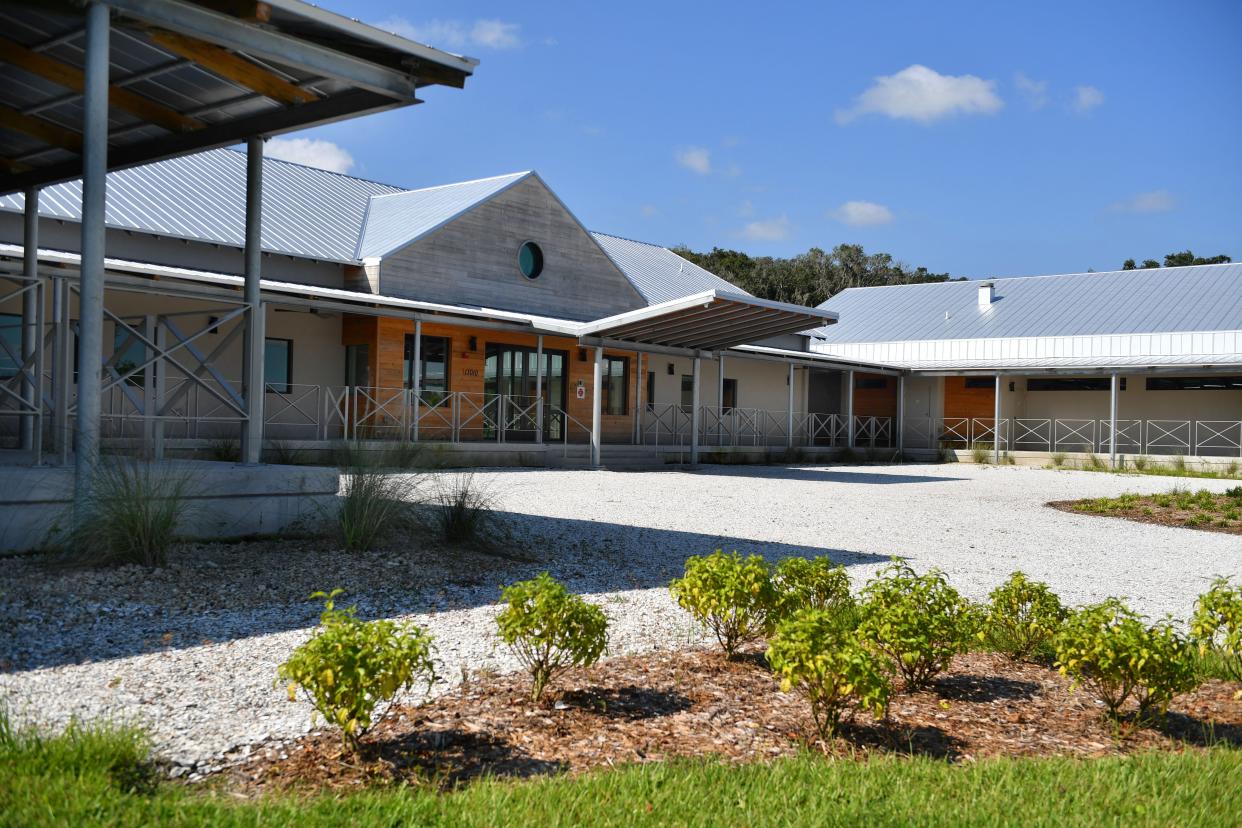
In the days after Hurricane Ian roared through Southwest Florida, Longboat Key Fire Rescue got a request for the help of their therapy dog from the Sarasota County Emergency Operations Center.
“These people were working nonstop,” said Longboat Key Fire Chief Paul Dezzi of the first responders. “It was traumatic for them.”
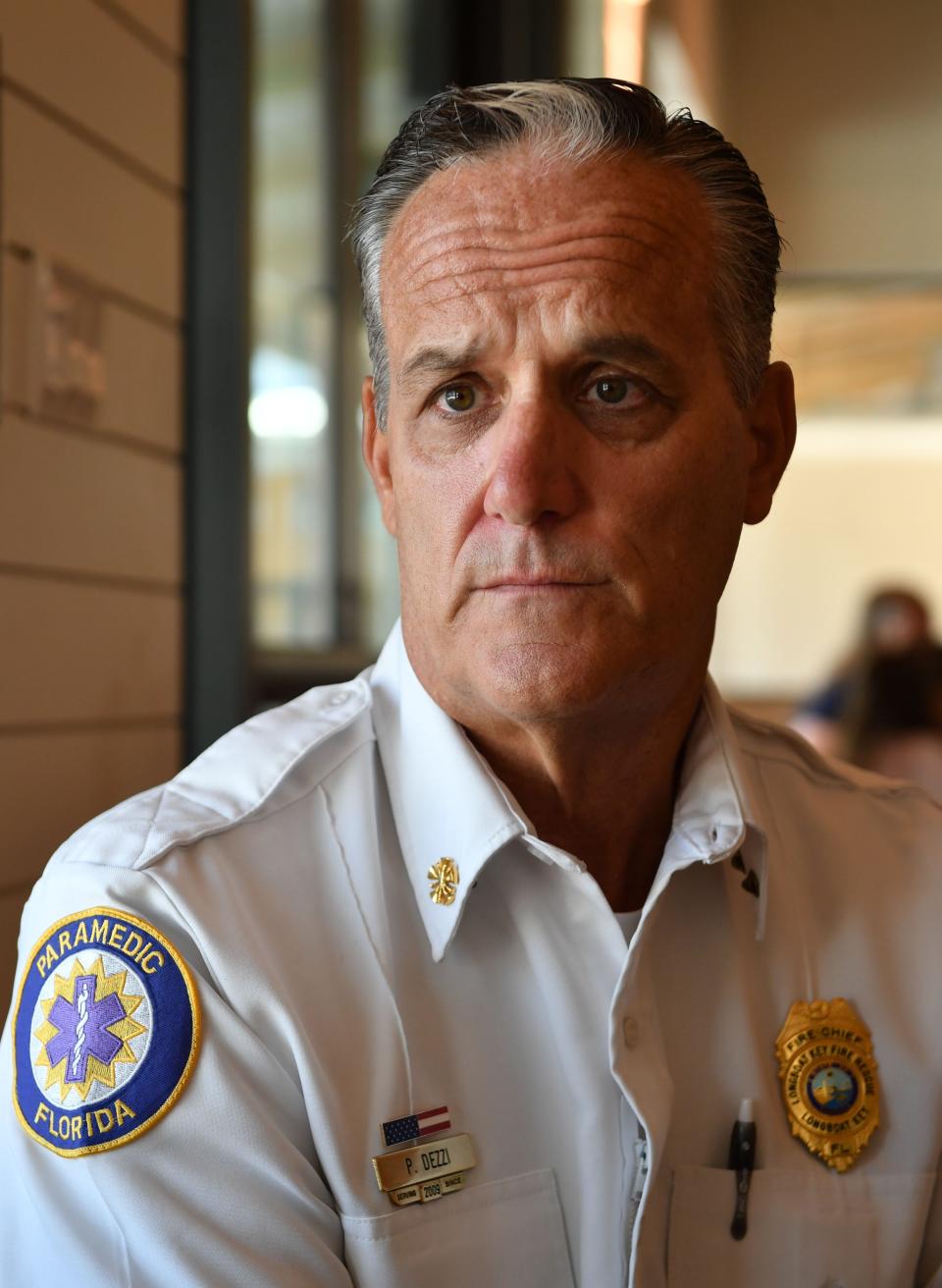
Dezzi’s deputy chief, Sandi Drake, brought therapy dog Hunter to the center to lend support.
But as the area settles into long-term recovery, there will be a new place for first responders and other trauma survivors to go to begin to heal.
Give back: 6 ways to help Hurricane Ian recovery in the Suncoast region
Sarasota foundations set up a recovery fund for area residents impacted by Ian
Resilient Retreat launches its facility in Sarasota County
Resilient Retreat – a nonprofit poised to become a regional and statewide leader in innovative, evidence-based trauma care – officially launches its facility this month with an open house on Tuesday, Oct. 18 and a grand opening luncheon featuring Ashley Judd on Nov. 3.
Located on 84 bucolic acres of conservation land in east Sarasota County, the nonprofit’s open house will showcase the results of a $7 million capital fundraising campaign: an 18,000-square-foot building known as The Retreat Center; and a 5,000-square-foot community center called The Gathering Place.
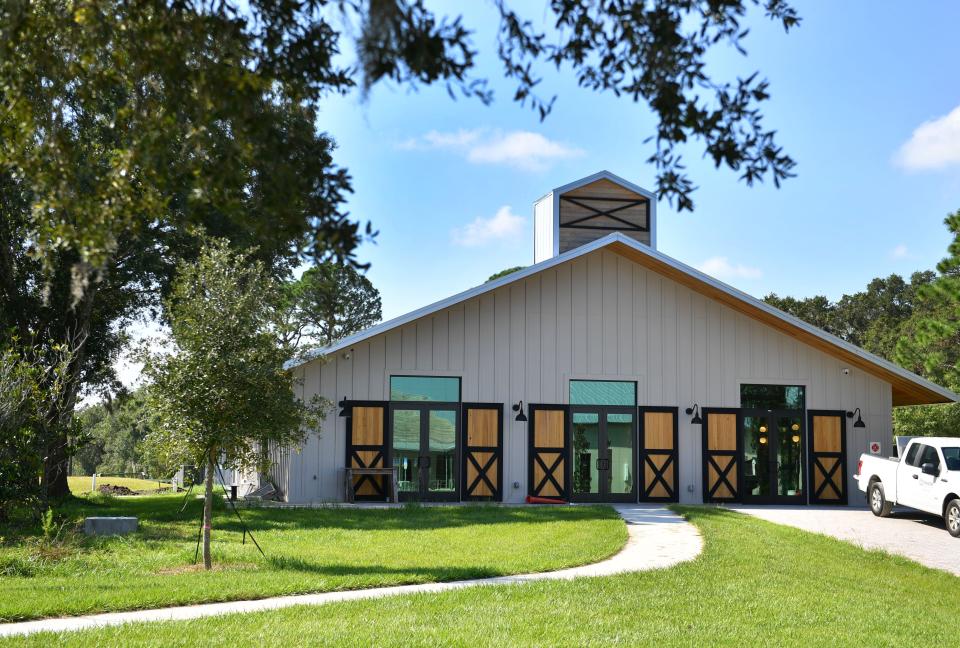
Surrounded by pastures, oak hammocks, walking paths, spacious porches, a pond and a community garden, Resilient Retreat offers day programs as well as one- to three-day retreats for people impacted by trauma and abuse, featuring everything from yoga and equine therapy to neurofeedback, theater classes and meditation. And all of it is free.
For now, the focus is on adult survivors of sexual assault, domestic and childhood abuse, as well as first responders and people in the helping professions – nurses, teachers and nonprofit employees.
Though the grand opening is coming soon, Resilient Retreat has already reached thousands of local residents since it was founded four years ago.
'It's amazing, the healing power of this place'
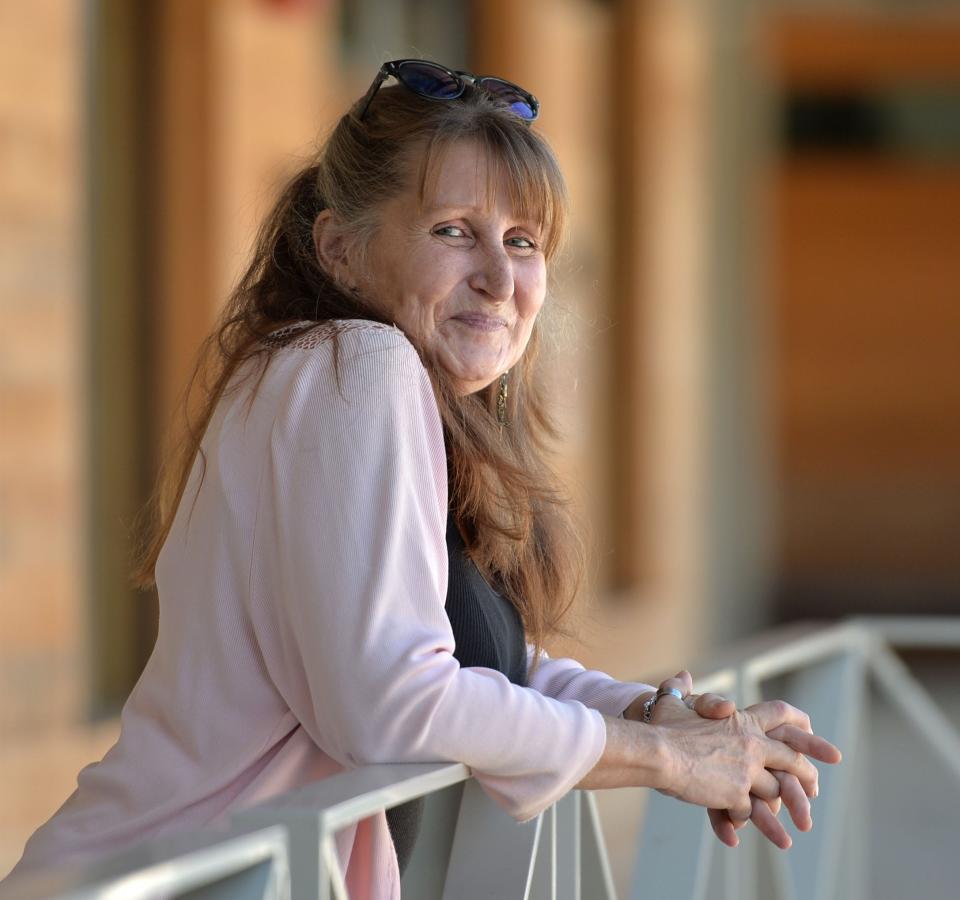
Sherry McSherry, 59, struggled with mental health issues and depression all her life, the effects of severe childhood abuse. The Bradenton woman was often near eviction and homelessness.
A few years ago a friend suggested equine therapy. McSherry liked the idea and called a center in Nokomis. But first, the director wanted her to talk with Sidney Turner, a researcher in public health at the University of South Florida.
Turner had just founded the nonprofit Resilient Retreat. While it was being built, she partnered with providers in the community, offering free services.
In the past, McSherry had found traditional routes to mental health care to be expensive and nearly impossible to access. But after speaking with Turner she agreed to participate in a research survey and neurofeedback therapy.
McSherry soon noticed a shift in herself. No longer just surviving and moving from one crisis to the next, she was managing challenges with purpose.
“It turned out to be the key to unlock the new me. I couldn’t even tell you what happened,” she said. “My whole attitude changed.”
For two and a half years, McSherry dove into all of Turner’s other programs with a cohort of fellow trauma survivors – participating in meditation, sound baths, trauma-informed journaling and the equine therapy she was originally interested in.
A former truck driver, nurse and electrician, she didn’t see herself fitting into a yoga class with skinny women in tight pants. But there she was, becoming part of the nonprofit’s growing community – practicing yoga in a barn.
“Here there’s no question whether you belong or not, you just do,” McSherry said.
Along with other participants, she was asked for input into programs and the buildings’ designs to help create an atmosphere of safety for future clients.
McSherry felt included, part of the mission.
“It’s a sense of wonder,” she said about Resilient Retreat’s beauty and tranquility. “I feel like this is my place. This is my home.”
Now McSherry, practicing new coping skills and habits, has gone from risking homelessness to repairing her credit, getting a job at Home Depot, saving her money and buying a house.
“I don’t feel like I’m afraid to fall off the edge anymore,” she said. “It’s amazing, the healing power of this place.”
'These are simple tools. We’re just not using them.'
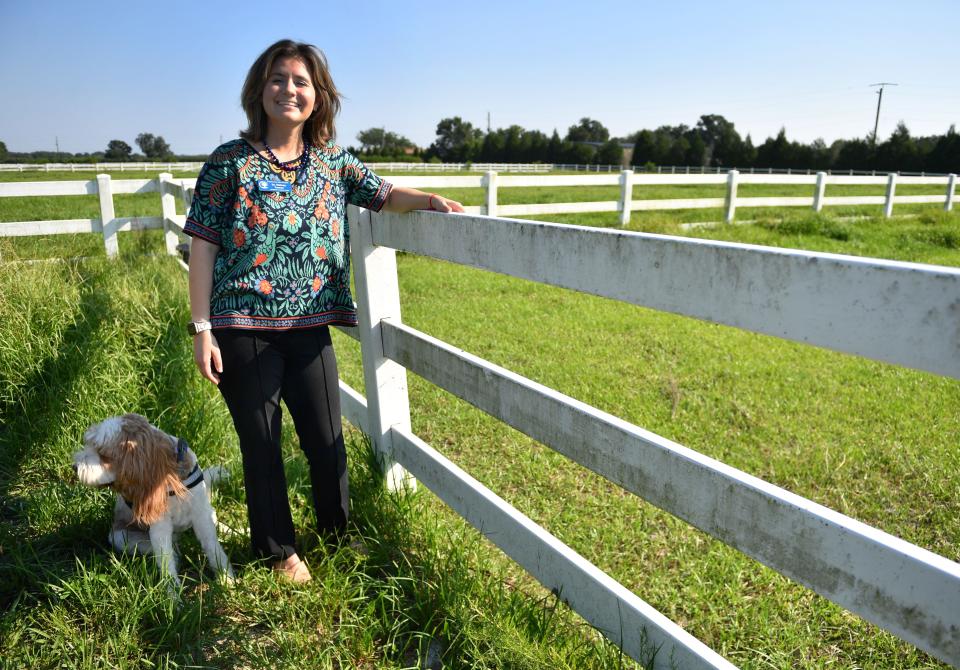
“A lot of the things we do at Resilient Retreat helped me heal,” Turner said.
Long before founding Resilient Retreat, she was a survivor of extreme abuse, living with a complex case of Post-Traumatic Stress Syndrome, or PTSD.
For 20 years she couldn’t sleep well or digest food, moving from one psychiatrist and therapist to another, trying medicines and talk therapy. At one point, she was told that she would just have to endure the symptoms of PTSD the rest of her life.
After earning her Ph.D. in psychology, she heard about trauma-informed yoga and nutrition and decided to try it out herself. She also returned to dance, a childhood passion.
Within three months, her PTSD symptoms began to subside. Within a few years, they were gone completely.
Turner began doing her own research in this area while delving into the groundbreaking work of trauma experts like Peter Levine and Bessel Van Der Kolk – scholars who have combined decades of the latest brain science and psychology research with treatments for trauma survivors.
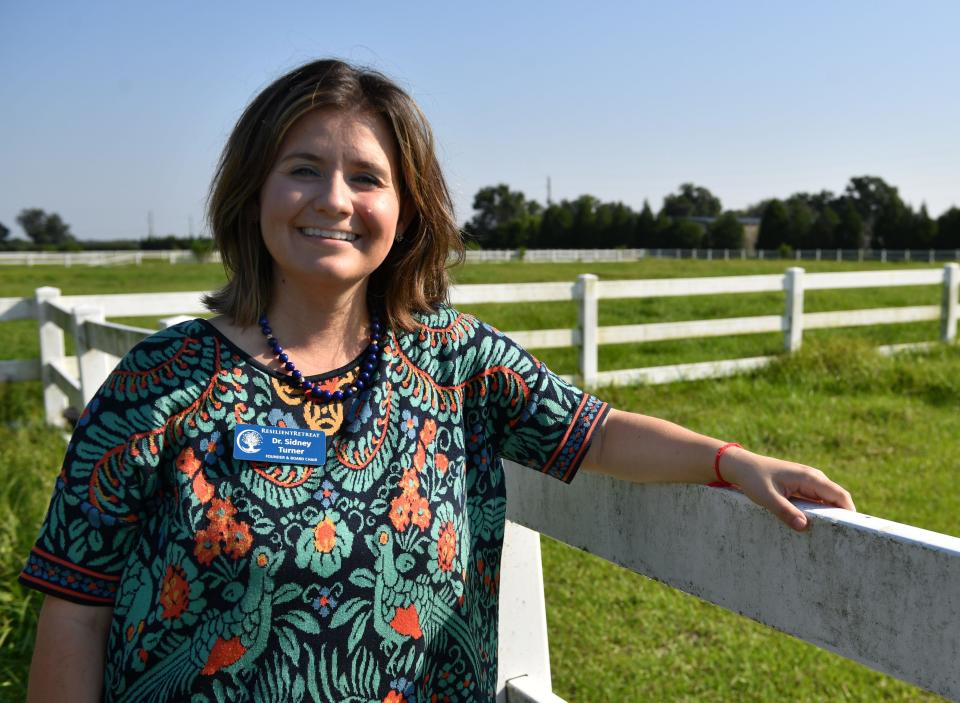
Their approach seeks to free trauma’s grip on the central nervous system – where the body’s natural, healthy fight-or-flight response stays locked on long after the danger has passed. Working with survivors of war, abuse and other traumas, they found measurable, physiological improvements through body-oriented therapies – everything from yoga and journaling, to neurofeedback, massage, theater, art and nature therapy.
These are simple tools," she said. "We’re just not using them.”
Turner decided she needed to go beyond academic research to reach more people.
“If I really want to move the needle for trauma survivors, I had to step out of my ivory tower at the university and really step into boots on the ground and translate the research into the real world,” she said.
The owner of a large piece of conservation land in Sarasota donated the property to Resilient Retreat, with the provision that they can only build on 1% of it.
Robust philanthropic support poured in. An anonymous donor gave $3.5 million to the capital campaign as well as up to $1 million in a matching grant for an endowment fund.
Numerous foundations contributed hundreds of thousands of dollars, including grants to offer community trauma training on a sliding scale.
Recently, the Charles & Margery Barancik Foundation gave Resilient Retreat a $600,000 grant to expand mental health programs designed for first responders and helping professionals in the community.
'It was the mental part of it that we always lacked'
Chief Dezzi from Longboat Key already was interested in expanding the wellness program for his fire rescue team when Turner first visited him a few years ago.
In almost four decades of fire service, Dezzi has seen the impact on first responders from handling traumatic calls like fatal wrecks or a child’s drowning. Outgoing personalities turn quiet and closed-off. Stress backs up, sometimes with tragic consequences.
Still, he was skeptical about what she had to say.
“I’m thinking to myself, ‘Yoga? Really?’” Dezzi recalled.
After Turner organized a yoga volunteer to come out to the station, a few of the guys attended the first class. Pretty soon the whole team was showing up.
With support from Resilient Retreat, Dezzi decided to expand the wellness program beyond nutrition and fitness.
“It was the mental part of it that we always lacked,” he said.
Dezzi reached out to fire rescue, dispatcher and law enforcement agencies in all jurisdictions across both Sarasota and Manatee counties. He helped form a team of representatives that will undergo trauma training in November at Resilient Retreat and bring what they learn back to their agencies.
With Resilient Retreat’s help, he also plans to create a Critical Incident Team that will be on hand 24/7 to attend to first responders after tragedies like a mass shooting, building collapse or natural disaster like Hurricane Ian.
“We could not have done this without Sidney and Resilient Retreat,” he said. “To have something local is a diamond to us, it’s in our backyard.”
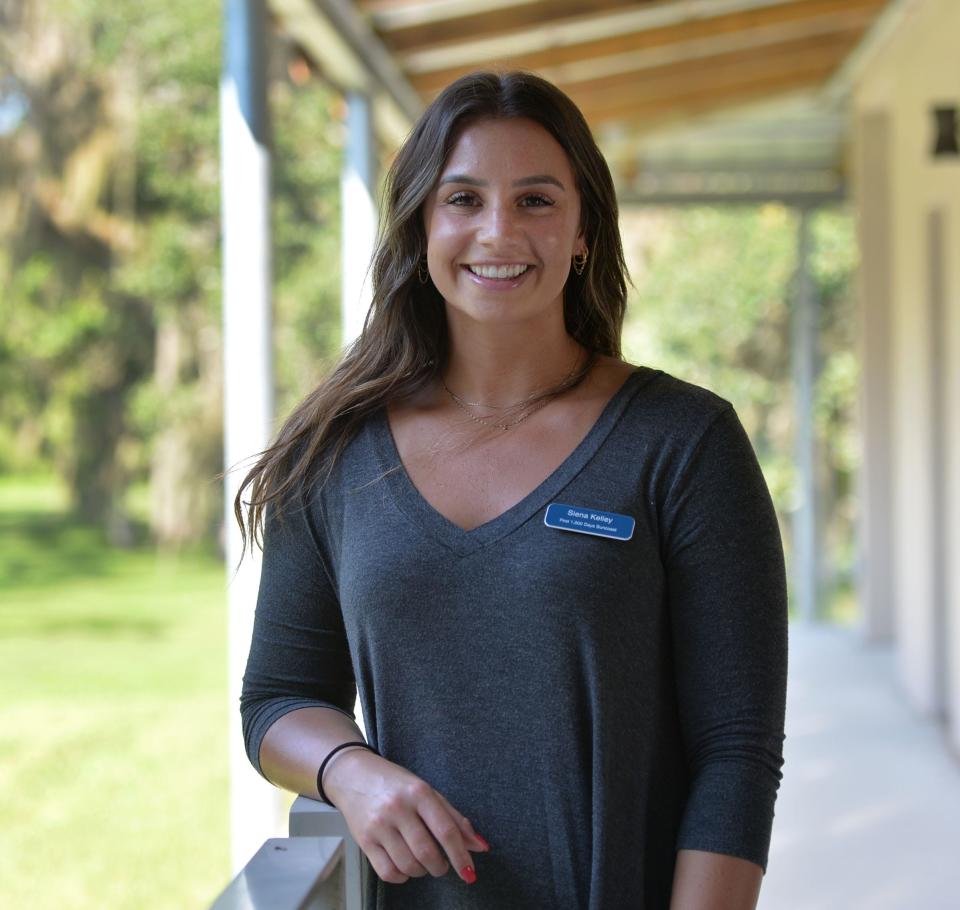
Nonprofits are also tapping into the expertise.
Earlier this year, First 1,000 Days Suncoast – a program through the Charles & Margery Barancik Foundation to help families during pregnancy and early in a child’s life – held an event for nurses, teachers and nonprofit workers, said Siena Kelley, community support specialist at Resilient Retreat.
Resilient Retreat provided training for trauma-informed care – tools helping professionals can use for themselves and pass to clients navigating the housing and childcare crisis, Kelley said.
For some in the helping professions, the benefits of programs have gone far beyond their work.
'They have changed my life'
Amber Scott, 44, was a registered nurse in Sarasota when she heard about free yoga offered by Resilient Retreat for people in her profession.
Having worked seven days a week through the first 10 months of the pandemic, one of her shoulders had locked up from stress and fatigue.
But when she called and answered questions about her job, she was asked if she had ever experienced abuse.
“Yeah, yeah, but that was a long time ago,” she remembered thinking.
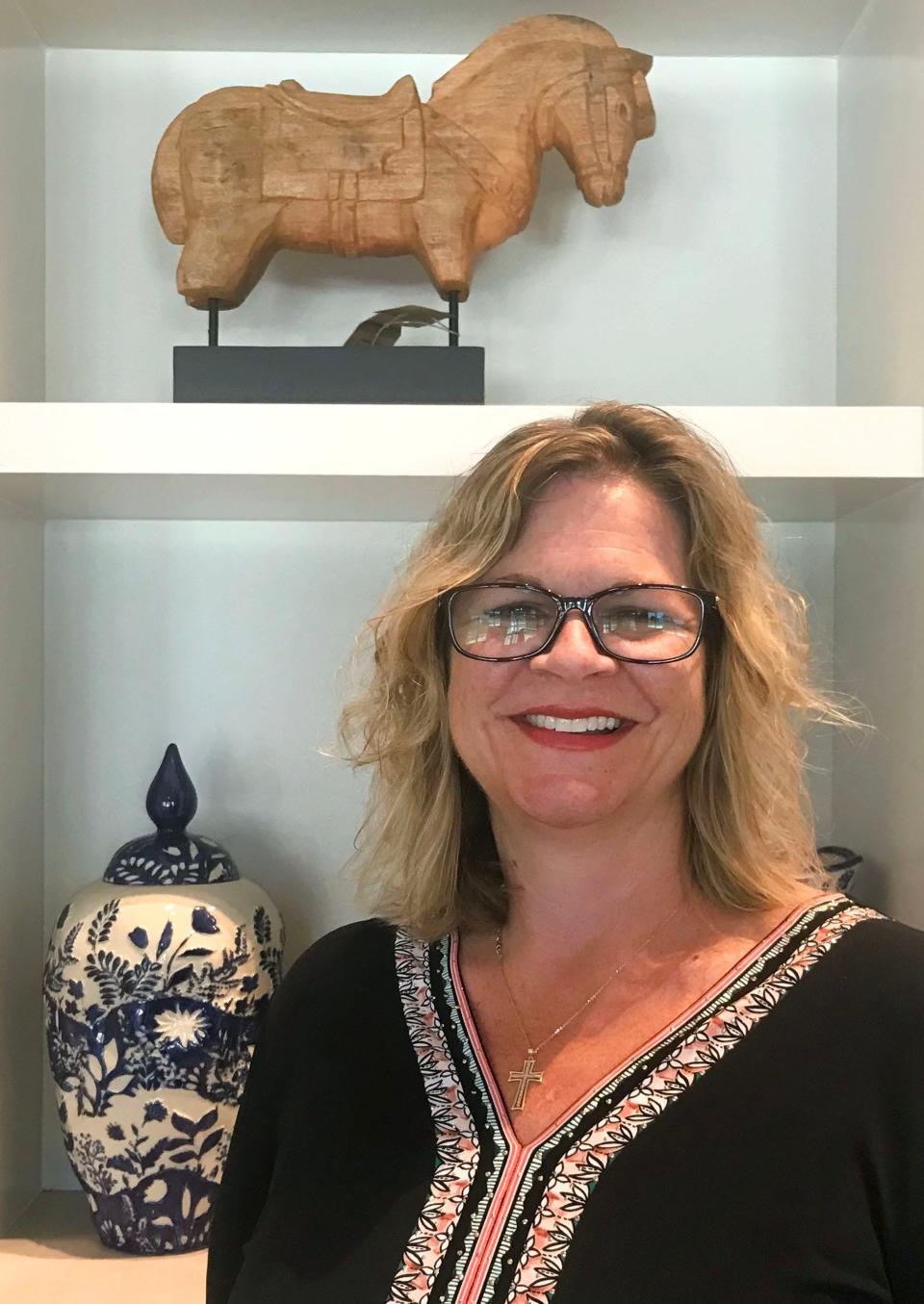
Scott had been raped and molested as a young teen and had long tried to forget about it.
But after her third session at Resilient Retreat, something changed.
“I got to my car and cried in my car for an hour,” she said.
After that, she dove into all of the programs Resilient Retreat offered – yoga, sound baths, meditation, neurofeedback and art classes provided through Van Wezel.
Stuck in an unhappy marriage and drinking a bottle of wine every night, she began to address her childhood trauma. She stopped drinking and started exercising.
Eighteen months later she is sober and has lost 25 pounds. She also has filed for divorce.
“If you would have seen me two years ago, you would have said, ‘That is not the same girl.’”
Scott now cycles 10 miles a day, has rediscovered her passion for nursing and feels like a more honest and nurturing mother for her two sons.
She feels emotionally, mentally and physically strong, and is grateful for the phone call she made that one day to Resilient Retreat.
“They have changed my life.”
About Resilient Retreat
Open House and building dedication: 9 a.m. to noon, Oct. 18.
Grand Opening celebration luncheon with Ashely Judd: 10:30 a.m. to 1 p.m., Nov. 3.
For more information, call 941-343-0039 or visit resilientretreat.org.
This story comes from a partnership between the Sarasota Herald-Tribune and the Community Foundation of Sarasota County. Saundra Amrhein covers the Season of Sharing campaign, along with issues surrounding housing, utilities, child care and transportation in the area. She can be reached at samrhein@gannett.com.
This article originally appeared on Sarasota Herald-Tribune: Sarasota's Resilient Retreat offers a place to heal from trauma

